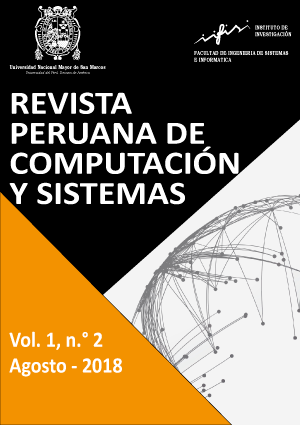Uncertainty of Geospatial Data in Oil Exploration
DOI:
https://doi.org/10.15381/rpcs.v1i2.15378Keywords:
Uncertainty, Crowdsourcing, Geographic Information System (GIS)Abstract
The present investigation has focused on the analysis of the uncertainty of geospatial data in the initial stage of oil exploration. Through the evaluation of reliability indices of different data processing methods, a method has been developed that considers Voluntary Geographical Information (VGI) as a new data source and Geodatabase (GDB) as the repository where this information has been validated. With the creation of “Uncertainty Sphere” artifact that has been based on the algorithms of Guide for the Expression of Uncertainty and Measurement (GUM) and the recommendations of ISO 19157: 2013, Geographic Data Quality, Uncertainty Space has been delimited from data collected. The application of a Geographic Information System (GIS) has managed input data (IGV), geospatial processing (artifacts), storage (GDB) and information products (maps). As a case of study, geopositioning uncertainty of Capahuari Sur 3 well of Frontera Energy company has been evaluated and six locations have been validated with GPSLogger and eleven with GPSMap60CSx. These results have allowed the company to consider better scenarios for the drilling of future exploratory wells.Downloads
Published
Issue
Section
License
Copyright (c) 2018 Alexander Eduardo Inga Alva

This work is licensed under a Creative Commons Attribution-NonCommercial-ShareAlike 4.0 International License.
THE AUTHORS RETAIN THEIR RIGHTS:
(a) The authors retain their trademark and patent rights, and also over any process or procedure described in the article.
(b) The authors retain the right to share, copy, distribute, execute and publicly communicate the article published in the Revista Peruana de Computación y Sistemas (for example, place it in an institutional repository or publish it in a book), with acknowledgment of its initial publication in Revista Peruana de Computación y Sistemas.
(c) Authors retain the right to make a subsequent publication of their work, to use the article or any part of it (for example: a compilation of their work, lecture notes, thesis, or for a book), provided that they indicate the source. of publication (authors of the work, magazine, volume, number and date).



